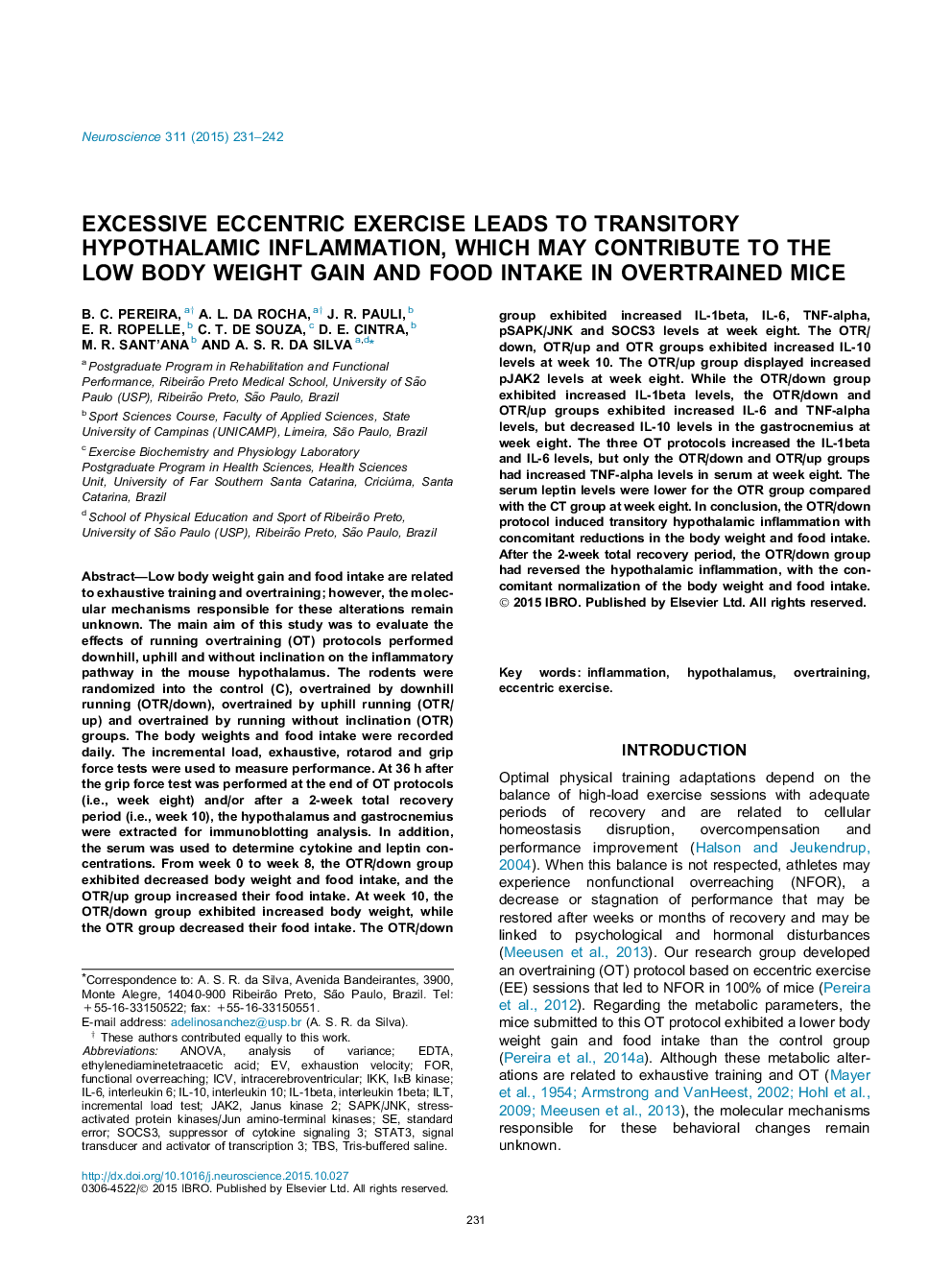| کد مقاله | کد نشریه | سال انتشار | مقاله انگلیسی | نسخه تمام متن |
|---|---|---|---|---|
| 6271626 | 1614765 | 2015 | 12 صفحه PDF | دانلود رایگان |
- Excessive eccentric exercise led to central and peripheral inflammation.
- The hypothalamic inflammation may be related to low body weight gain and food intake.
- After a 2-week total recovery period, mice reversed central inflammation.
- This recovery period normalized metabolic parameters and increased IL-10 levels.
Low body weight gain and food intake are related to exhaustive training and overtraining; however, the molecular mechanisms responsible for these alterations remain unknown. The main aim of this study was to evaluate the effects of running overtraining (OT) protocols performed downhill, uphill and without inclination on the inflammatory pathway in the mouse hypothalamus. The rodents were randomized into the control (C), overtrained by downhill running (OTR/down), overtrained by uphill running (OTR/up) and overtrained by running without inclination (OTR) groups. The body weights and food intake were recorded daily. The incremental load, exhaustive, rotarod and grip force tests were used to measure performance. At 36Â h after the grip force test was performed at the end of OT protocols (i.e., week eight) and/or after a 2-week total recovery period (i.e., week 10), the hypothalamus and gastrocnemius were extracted for immunoblotting analysis. In addition, the serum was used to determine cytokine and leptin concentrations. From week 0 to week 8, the OTR/down group exhibited decreased body weight and food intake, and the OTR/up group increased their food intake. At week 10, the OTR/down group exhibited increased body weight, while the OTR group decreased their food intake. The OTR/down group exhibited increased IL-1beta, IL-6, TNF-alpha, pSAPK/JNK and SOCS3 levels at week eight. The OTR/down, OTR/up and OTR groups exhibited increased IL-10 levels at week 10. The OTR/up group displayed increased pJAK2 levels at week eight. While the OTR/down group exhibited increased IL-1beta levels, the OTR/down and OTR/up groups exhibited increased IL-6 and TNF-alpha levels, but decreased IL-10 levels in the gastrocnemius at week eight. The three OT protocols increased the IL-1beta and IL-6 levels, but only the OTR/down and OTR/up groups had increased TNF-alpha levels in serum at week eight. The serum leptin levels were lower for the OTR group compared with the CT group at week eight. In conclusion, the OTR/down protocol induced transitory hypothalamic inflammation with concomitant reductions in the body weight and food intake. After the 2-week total recovery period, the OTR/down group had reversed the hypothalamic inflammation, with the concomitant normalization of the body weight and food intake.
Journal: Neuroscience - Volume 311, 17 December 2015, Pages 231-242
